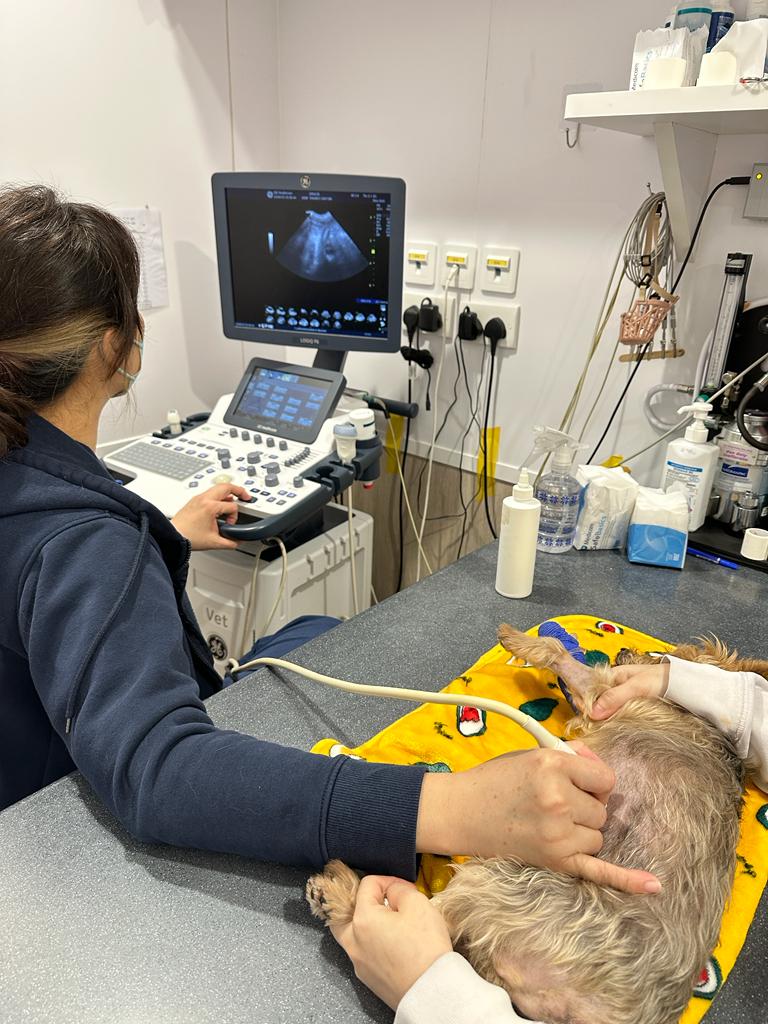Causes of pancreatitis in cats
Cause unknown in 90% of cases
-May be an association with inflammatory bowel disase
-Trauma (hit by car or high rise syndrome)
-Infections (parasitic like toxoplasma gondii but will affect other tissues and active feline panleukopenia infection)
-Hypotension (under general anaesthesia)
-Drugs/pesticide such as organophosphate, diuretics, some antibiotics, seizure medication or immunosuppresive drugs
-Pancreatic neoplasia
-Reflux of duodenal contents into pancreatic duct (less common in vet patients)
Causes of pancreatitis in dogs
-Breed disposition (Minature Schnauzers, Minature poodle, Yorkshire terriers and other terrier breeds most commonly. But, also Cocker Spaniels, Daschunds, Poodles, Malamutes). Cavalier King Charles Spaniels, Collies and Boxers are predisposed to chronic pancreatitis.
-Concurrent hormonal imbalance eg: Diabetes, hypothyroidism (through disordered fat metabolism) and hypercalcaemia (due to activation of stored digestive enzymes)
-Sudden fatty meal
-Obesity is a risk factor due to altered fat metabolism
-Trauma (blunt force or surgical manipulation may cause this) [similar to cats ]
-Pesticide/Drugs [similar to cats ]
-Pancreatic neoplasia [similar to cats ]
-Reflux of duodenal contents into pancreatic duct (less common in vet patients ) [similar to cats ]
When inflammation subsides, scarring results and when >80% of the pancreas is damaged and insulin cannot be produced, diabetes results.
The disease presentation can vary greatly from very mild to severe and sometimes deadly. Severe pancreatitis may also cause diabetes or diabetic ketoacidosis.
Clinical signs range from dehydration anorexia, dehydration, weight loss, vomiting, diarrhoea, abdominal pain and jaundice.
Routine blood tests are useful and should always be performed for pancreatitis but findings are not always specific. Amylase, lipase, TLI (trypsin-like immunoreactivity) have limited clinical value for the diagnosis of pancreatitis in dogs or cats. The blood test of choice is serum pancreatic lipase immunoreactivity (PLI) sent to external laboratories.  The gold standard for diagnosis is biopsy for classification and diagnosis but is more invasive as requires general anaesthesia and an exploratory laparotomy. Abdominal ultrasound is a useful tool to exclude other diseases that may cause clinical signs similar to pancreatitis and can be very useful for the diagnosis of pancreatitis but it depends on clinician experience.
Ideally, history, serum PLI concentrations, abdominal ultrasound together with pancreatic cytology or histopathology when indicated is the most practical and reliable means for an accurate diagnosis of pancreatitis.


Supportive care include IV fluids, anti-nausea medication, gastric +/- ulcer protection and rapid returns to feeding (via feeding tube etc) aids in recovery.
The use of plasma products has now gone out of favour with ongoing research unless there is a concurrent clotting dysfunction with the patient.



